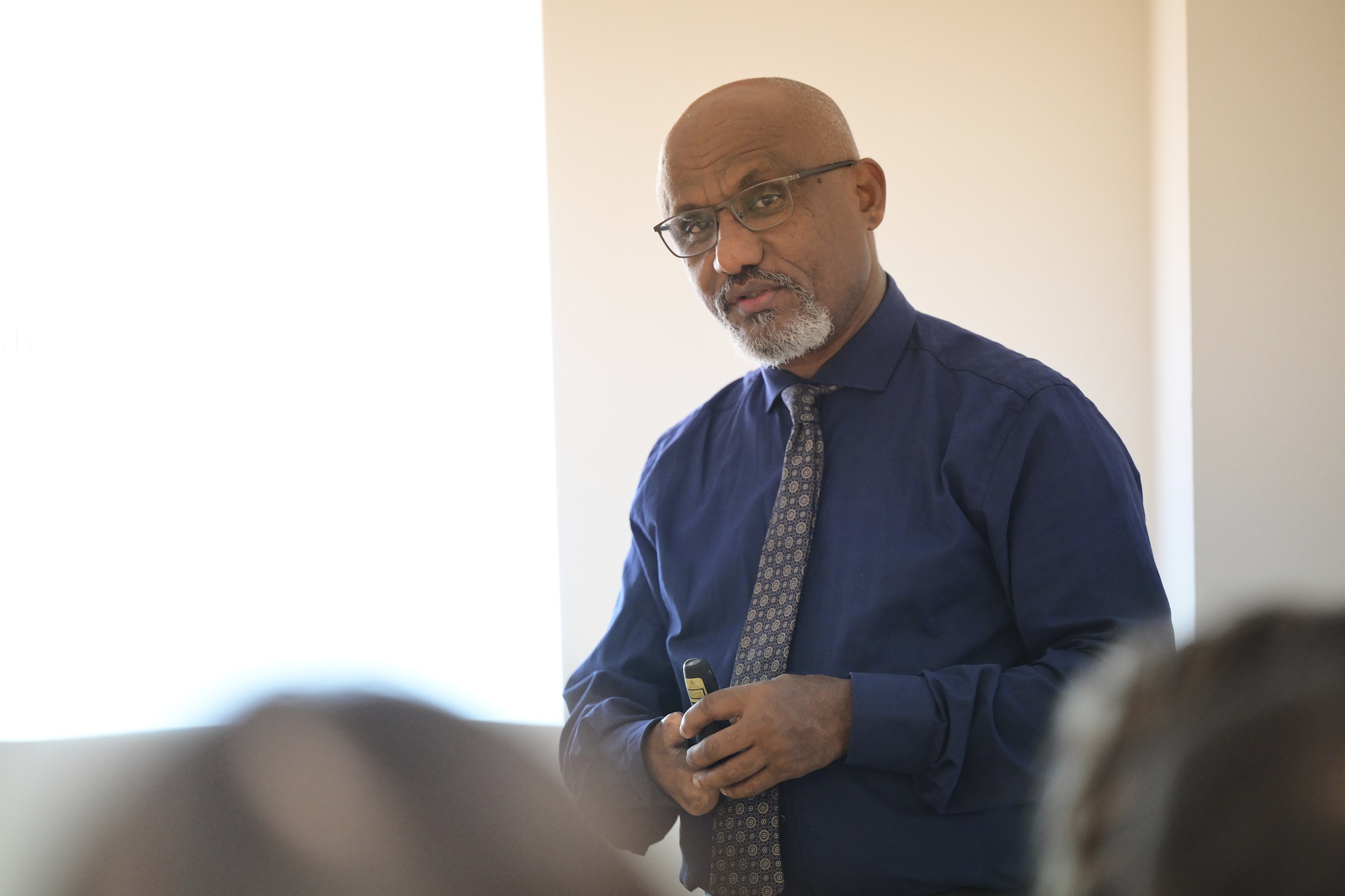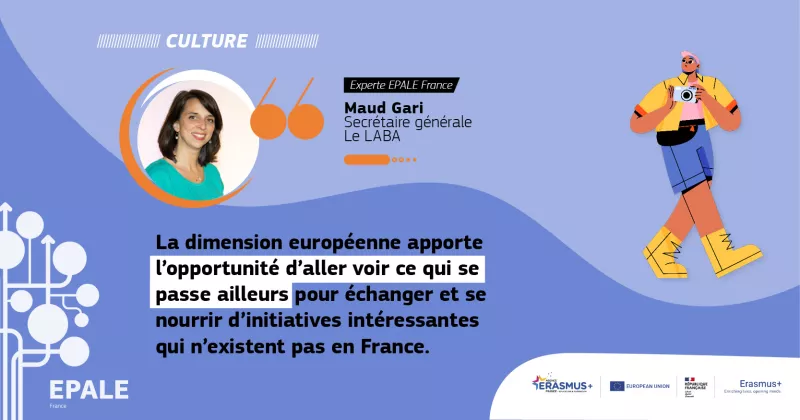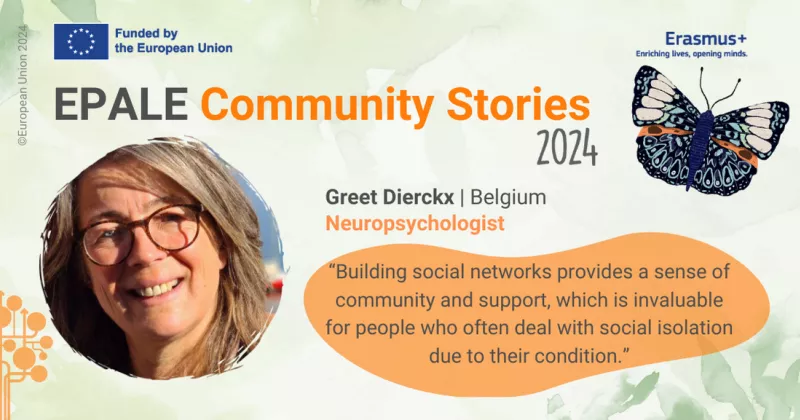Ready or Not, Here We Come! Is Career Guidance Ready for the New Europe?

Author: Daniel Hailemariam
Change Comes with Challenges
An old Proverb says: “When the winds of change blow, some seek shelter, others build windmills”. The Winds of demographic and societal changes have been blowing in Europe for the last decades. Changes over the years in the population structure have resulted in numerous challenges. One of the main demographic changes and challenges in Europe is immigration. The scale it has been taking place in recent years has undoubtedly affected and still affects all aspects of society, and career guidance is no exception. The question addressed in this workshop is whether Europe is ready for the demographic changes and challenges.
All these changes have made practitioners in the field of career guidance aware of the fact that we are increasingly being judged by a new yardstick and that is how we handle ourselves and those different from us; this is often referred to as “soft skills” – a non-negotiable 21st-century skill. Soft skills include the ability to work with diverse groups towards inclusion.
Monoculturalism – Multiculturalism – Interculturalism
Over the decades Europe has gone from being a monocultural continent to a multicultural continent. The models of understanding and dealing with both mono- and multiculturalism have also varied through the years. For years assimilationism – the process of individuals with differing cultural backgrounds acquiring the basic habits, and attitudes of the majority culture, has been the dominating model. Assimilation emphasized unity at the expense of ignoring diversity. After that multiculturalism – the view that minority groups deserve special acknowledgment of their differences within a dominant culture, has been the model of understanding and dealing with diversity. Multiculturalism emphasizes cultural differences at the expense of unity. However, multiculturalism (acknowledging diversity) hasn't been sufficient in addressing the challenges Europe faces due to the growing population of immigrants who come from different cultural and worldview backgrounds.
A better model of understanding and dealing with diversity discussed in the workshop is the idea of interculturalism which focuses on cultures exchanging experiences with each other.
The benefits of interculturalism are:
- interculturalism is a negotiation between (“inter”) people and fosters mutual influence, mutual understanding, inclusion, embracing diversity, and having a critical approach to prejudices towards others.
- interculturalism aims to realize equality and societal cohesion by building on diversity.
- interculturalism is the art of living together sharing a common space working toward the common good and speeding up integration.
- interculturalism seeks to embrace the richness of cultural diversity while recognizing the shared humanity that binds us all.
- interculturalism helps us realize that what all of humanity shares goes beyond individual differences and instead emphasizes building bridges of understanding between different cultures to cultivate an inclusive society that celebrates the beauty of differences and upholds the principles of equality and social justice.
Career Guidance – a Western Concept
Career counseling and guidance as a profession and service is a Western concept and practice that needs to be explained and contextualized for people from other parts of the world. One cannot assume that the service of career guidance and the idea and concepts related to it is recognized and can be fully utilized by the target group. One way of understanding this is to highlight one of the many diversity dimensions namely the concepts of group (collective) oriented and individual-oriented societies.
Group-oriented and individual-oriented societies represent two distinct cultural orientations. These cultural orientations have a significant impact on various aspects of social behavior, values, and norms. Different societies may fall on a spectrum between these two cultural orientations, and individuals within a society may also express a combination of these values and behaviors. Understanding these cultural orientations and major differences, however, can help in promoting cross-cultural understanding and effective communication in career counseling settings. In a nutshell: career guidance is a Western concept widely practiced in Western societies that are identified as individual-oriented societies with their distinctiveness. Most immigrants come from societies that are identified as group-oriented societies with their distinctiveness.
Career counselors play a unique and vital role in the integration of immigrants in Europe. Their role is multi-faceted and encompasses several key aspects that contribute to the successful integration of immigrants into the host society. Career counselors can fill in the gap by being cultural bridges helping immigrants understand the nuances of the job market and workplace culture in the host country. It is crucial to acknowledge that immigrants undergo various phases during the process of migrating to a new country.
Norms, and Being Norm Critical
Norms can be seen as something universal and local. Universal normality refers to the idea that certain behaviors, activities, and needs are considered normal across all cultures and societies. It suggests that some universal activities apply to all human beings, regardless of their cultural background. These include eating, dancing, crying, and greeting, just to mention a few. These are basic human behaviors and are practiced across borders – this is the “what”.
The expression or “the how”, however, is contextual and local. For example, how we eat, our clothing choices, our gender roles, and how our social customs are carried out and expressed can vary widely across different cultures. In some cultures, it is customary to eat with hands, while in others, using cutlery is the norm. Similarly, what is considered appropriate behavior for men and women may differ significantly from one culture to another. This means that no culture's norms can be objectively judged as superior or inferior – good or bad. The difference, after all, is not in what we do, but in how we do things.
Being norm-critical is an approach that aims to question and challenge our norms and the power structures we are used to, to be more inclusive.
- Norm criticism seeks to analyze and deconstruct norms related to gender, race, sexuality, disability, and other social categories to create awareness of their impact on individuals and groups within a society.
- Norm criticism seeks to promote social justice and equality by challenging oppressive norms and advocating for more inclusive and equitable societies.
- Norm criticism acknowledges the complexity of these interactions and the unique experiences that result from them.
- Norm criticism questions the taken-for-granted norms and expectations that govern behavior and social roles.
- Norm criticism seeks to reveal the power dynamics behind norms and their consequences for marginalized groups.
- Norm criticism empowers individuals to question norms and resist societal pressures that limit their freedom and self-expression.
- Norm criticism challenges harmful norms and strives to create more inclusive spaces that appreciate diversity and difference.
- Norm criticism emphasizes the importance of understanding norms within their historical, cultural, and social contexts to identify the roots of discrimination and inequality.
Therefore, embracing cultural relativism and acknowledging normality as universal and local is essential for promoting mutual understanding and respect between different societies. It helps prevent ethnocentrism, which is the tendency to judge other cultures based on one's cultural standards.
Conclusion
When it comes to culture, it doesn't help to think of “better or worse” or “good or bad” cultures. Problems and clashes usually arise due to a lack of (re)flection. We need to consider that there may be other realities from which someone derives his or her way of being. The demographic challenges ahead might be great, but so are the opportunities if tapped upon. With an unreserved commitment to lifelong learning, an openness to new ideas, and a willingness to embrace diversity and inclusion, career counselors and the society at large, can contribute to making Europe ready for the new norm.
Is Europe ready? The readiness of Europe for career guidance for immigrants can vary from one country to another and depends on a range of factors, including government policies, available resources, and the overall approach to immigration and integration. Each country has its approach to immigration and integration. Some countries have well-established career guidance and support programs for immigrants, while others may lag behind. Countries that allocate sufficient resources to immigrant integration programs and provide practitioners with training are often better equipped to provide effective career guidance services.
Intercultural perspectives can emerge as a beacon of hope, offering a profound and dynamic approach to addressing the unique challenges and complexities faced by practitioners. This topic should be a significant concern for policymakers and practitioners in their endeavor to make Europe ready for the new reality and address the unique needs of individuals from different cultural backgrounds. By incorporating intercultural perspectives into policies and practices, career counseling can better serve the needs of an increasingly diverse global population in Europe. This makes cultural competence no longer optional but essential.
While the demographics shift and challenges surmount and propel us forward, one thing that remains constant is the need for compassion and empathy. It is our humanity that will guide us to give the right services and make the right policies. Finally, no matter how similar we are, there will always be differences! No matter how different we are, there will always be similarities! So, the question is what we choose to focus on.

Foto (c) OeAD/APA-Fotoservice/Hörmandinger
About the author:
Daniel Hailemariam (Hailemariam Consulting) is originally from Ethiopia but has been living in Sweden since 1984. His training encompasses the fields of Theology, Education, and Career Counseling. Following approximately 12 years of service as a pastor and senior administrator for a church, he transitioned to the field of Education. Daniel has dedicated over two decades to this new sector, serving as a career counselor across all educational levels and, more recently, as a university lecturer at Stockholm University. Presently, he is self-employed, offering services that include career counseling, general counseling, delivering lectures, and conducting competence development seminars.
About this blog:
This blog post is based on a workshop held by the author at the Austrian Euroguidance conference "Skills for the future" on 9 November 2023.





You're doing an extremely…
You're doing an extremely important job! Unfortunately, finding a job is not the only obstacle for migrants. I myself am a college counselor, and every day I can observe the scale of the problem, which, in fact, concerns us all. All in all, the problem is complex, and we must approach it accordingly. With your permission, I would like to share resources that we at our university find extremely useful and that may be applicable to anyone working with migrants and refugees:
https://education.ec.europa.eu/focus-topics/improving-quality/inclusive-education/migrants-and-refugees
https://custom-writing.org/blog/culturally-responsive-education
https://www.prodigygame.com/main-en/blog/culturally-responsive-teaching/